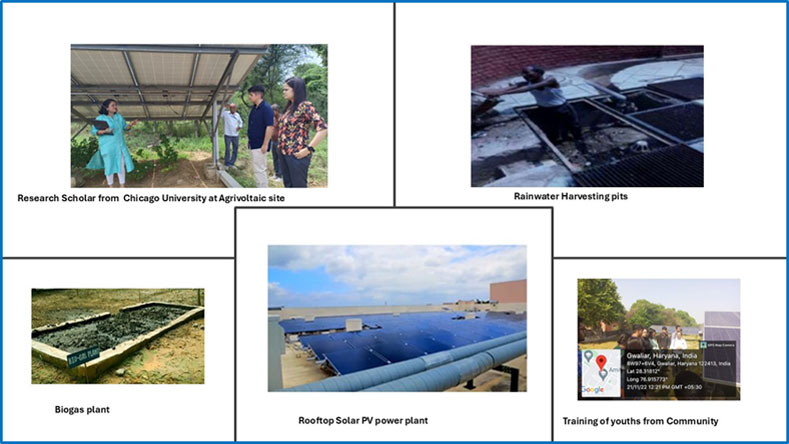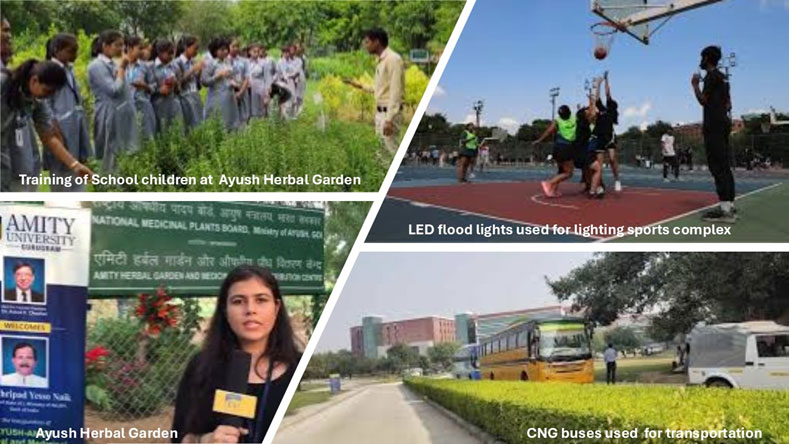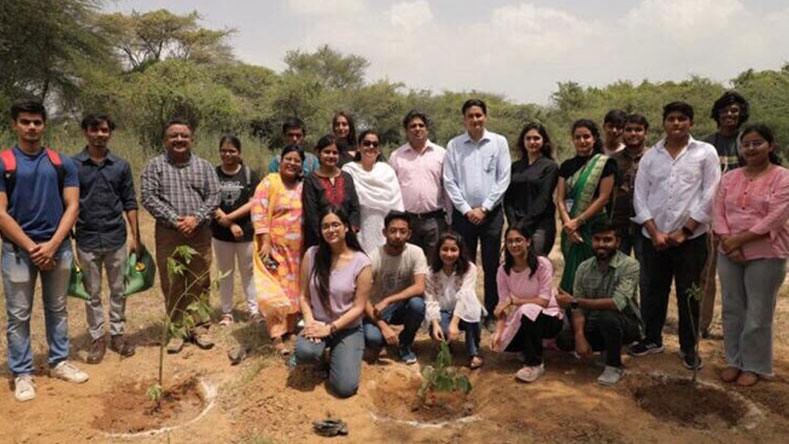Adaptation Of Low Carbon Technology & Sustainable Sites
Amity University Haryana is making substantial strides in energy transition by reallocating investments from energy-intensive systems to clean energy solutions, fostering a low-carbon environment throughout its operations, including academic delivery, administration, and maintenance. To support this transition, the university follows its Sustainable Energy Policy and Building Commissioning Policy, which require a phased approach to attaining carbon neutrality.
The campus features various Sustainable Sites, including rainwater harvesting pits, a rain garden, and no-mow zones. The university has installed a 500kWp rooftop solar PV system that mitigates 14,145 tons of CO2 emissions, which is equivalent to planting 22,632 teak trees over its lifetime. This solar plant operates without breakdowns and generates energy year-round, providing shade for the roofs and reducing the thermal load of the buildings. Additionally, a 185kWp ground-mounted system creates a habitat for wildlife, including peacocks, small native birds, butterflies, bees, porcupines, snakes, and blue bucks. This system is also utilized to grow plants under the panels, training community farmers and research scholars from India and abroad on the dual use of land for agricultural purposes and solar power generation (agrivoltaics).

Adaptation of Low Carbon Lighting: The university operates a dedicated 33 kV independent feeder that is highly stable and experiences minimal breakdowns, reducing reliance on diesel generators and helping control carbon emissions. Regular emission analyses and monitoring of the diesel generators are conducted to maintain low pollution levels. There is also a plan to replace 240 conventional 400-watt halogen lamps with 200-watt LED floodlights that provide the same level of illumination. This replacement will occur in four phases, with 60 lights replaced in each phase. After the first phase, which includes the installation of 50 LED floodlights, an estimated savings of ₹195,750 has been projected. Additionally, a biogas plant on the AUH farm meets the energy needs of the dairy.
Achieving Carbon Free Transportation facility is one of the main targets of AUH. The university promotes the use of public transport for daily commuting among day scholars, faculty, and staff. A fleet of buses running on CNG is maintained to help minimize the carbon footprint. The university ensures that all vehicles entering the university must have a "Pollution Under Control" certificate. Additionally, the campus strictly adheres to a "No Smoking Zone" policy.

Advocating Environment Consciousness: The plantation drive is an essential aspect of the AUH system, integrated into events from orientation to convocation. Students, faculty, parents, and staff are encouraged to plant a sapling and care for it during their time at AUH, fostering a sense of love and respect for the Earth. Currently, AUH boasts over a hundred varieties of native plants on campus, along with a herbal garden supported by the Ministry of AYUSH, which cultivates various medicinal plants and conducts programs to educate college and school children about their benefits.

© 2021 Amity University Gurugram. All Rights Reserved.
